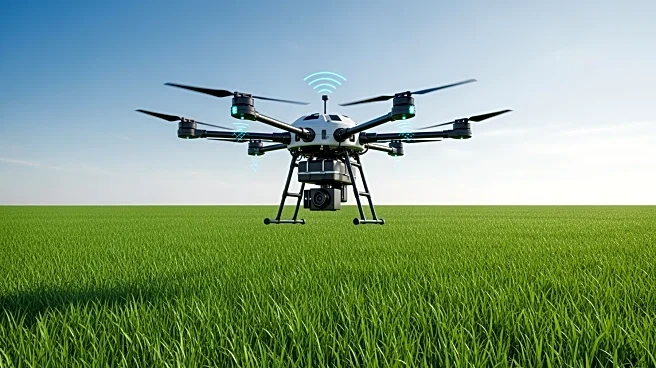What's Happening?
The global agriculture drone market is projected to grow significantly, reaching an estimated value of $80.94 billion by 2034. This growth is driven by advancements in precision agriculture, GPS mapping,
and the adoption of smart farming techniques. The market, valued at approximately $2.68 billion in 2024, is expected to expand at a compound annual growth rate of 40.60% from 2025 to 2034. North America, Europe, and Asia-Pacific are key regions contributing to this growth, with factors such as high-quality crop demand, increased labor costs, and favorable regulations supporting the market expansion.
Why It's Important?
The rapid growth of the agriculture drone market highlights the increasing reliance on technology to enhance agricultural productivity and efficiency. Drones offer farmers comprehensive insights into crop growth and yield quality, enabling them to optimize farming practices. This technological advancement can lead to improved food security, reduced resource usage, and increased profitability for farmers. The market's expansion also reflects broader trends in automation and digitalization within the agricultural sector, potentially transforming traditional farming methods.
What's Next?
As the agriculture drone market continues to grow, stakeholders such as technology companies, farmers, and government agencies are likely to invest further in drone technology development and adoption. Regulatory frameworks may evolve to accommodate the increasing use of drones in agriculture, potentially leading to more widespread implementation. The focus on smart farming techniques in regions like Asia-Pacific could drive innovation and collaboration among industry players, fostering new solutions for sustainable agriculture.
Beyond the Headlines
The integration of drones into agriculture raises ethical and legal considerations, such as data privacy and the impact on rural communities. As technology becomes more prevalent, addressing these concerns will be crucial to ensure equitable access and responsible use. The long-term implications of drone technology in agriculture may include shifts in labor dynamics and the need for new skill sets among farmers, potentially influencing educational and training programs.









